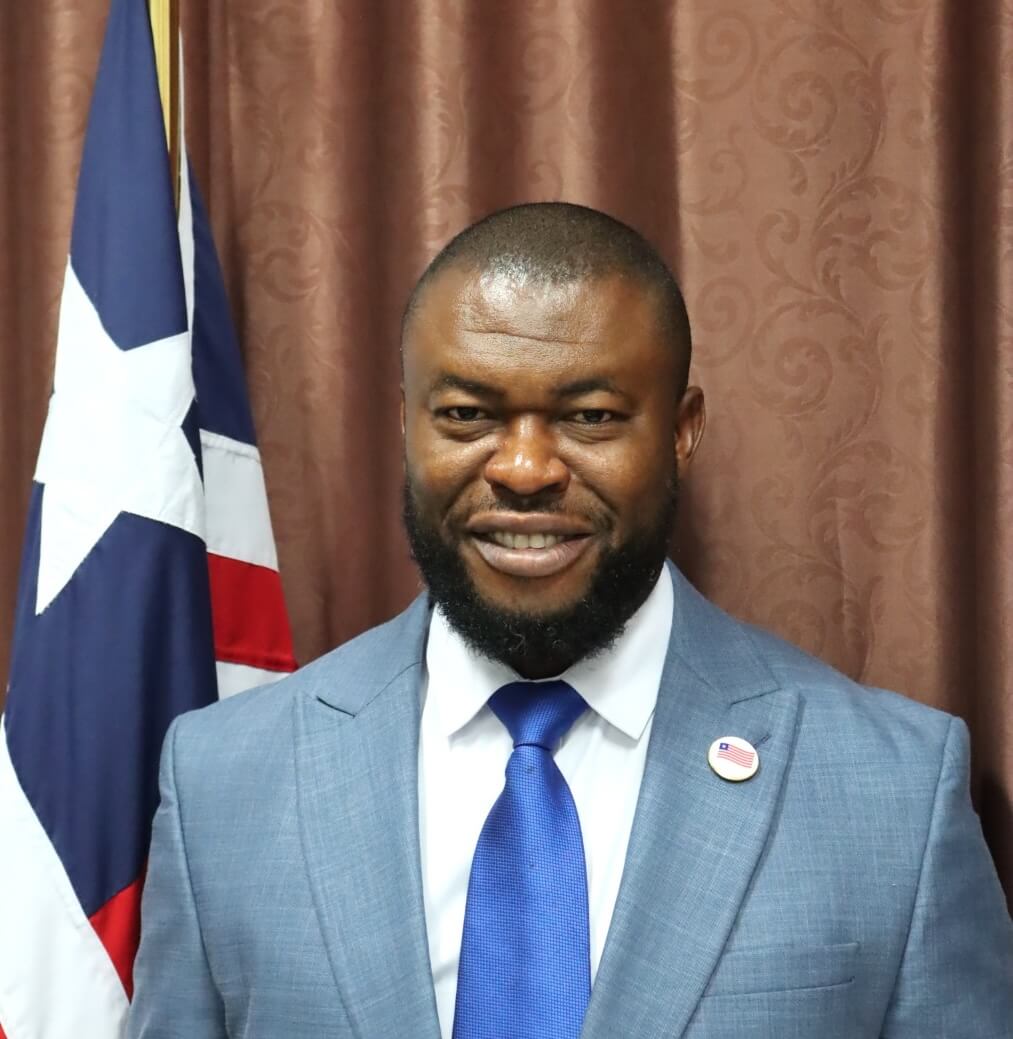When Josiah F. Joekai Jr., Ph.D., steps into his office in Monrovia, Liberia, he is reminded of the immense responsibility that comes with serving his country.
“I’m guiding a workforce of more than 63,000 civil servants,” Dr. Joekai said. “These are teachers, health care workers, administrators, and many others whose daily work shapes the future of a nation.”
As director-general of Liberia’s Civil Service Agency, Dr. Joekai today is leading a sweeping effort to reform the public sector. Under his direction, the country of nearly 6 million in West Africa is embracing merit-based recruitment, professional development, and workplace culture transformation. These reforms to build a system grounded not only in efficiency, but also dignity, fairness, and accountability.
“To me, these are principles I gained from my four years at Adler University,” said Dr. Joekai, who this year completed the Doctor of Philosophy in Industrial and Organizational Psychology program. “I use them every day as I guide Liberia’s civil service transformation.”
“We are building systems that recognize every worker’s contribution,” he said. “We want to create workplace where every worker feel they belong, and that work-life balance are not just ideals, they are realities.”
The importance of transformational leadership and becoming agents of institutional change are among the things Dr. Joekai plans on share with his peers as this year’s graduate student speaker during the University’s Nov. 2 commencement ceremony at the Chicago Theatre.
“I started way down the ladder in public service,” he said. “I’ve written policy, built frameworks, and seen real change in people’s lives. The Ph.D. program at Adler was a refinement and confirmation of what I had been doing my whole life.”
A born public servant
When he was a teenager, Dr. Joekai said he remembers walking around his small village and questioning why buildings weren’t better maintained.
“I’d ask my late dad, ‘Why can’t people clean it up? Why can’t it get a new paint job? Or who should be clearing the brush on the roadside?’” Dr. Joekai said. “He would stop and look at me and ask me, ‘Why are all these things important to you?’ But he would then add, ‘Don’t just ask questions, do something about it.’”
For Dr. Joekai, that’s among one of his first memories when he took an interest in public service, specifically managing teams to help improve communities and those who reside in them.
Today, Dr. Joekai continues to believe that systems only work when they serve people.
In additional to his national leadership role, he chairs the Health and Public Service Network of Africa, where he is pioneering a continental framework to integrate health care professionals into civil service systems. It’s a model that is now being replicated across Africa.
Dr. Joekai is also board chairman of the President’s Young Professionals Program, Liberia’s premier pipeline for emerging government leaders.
“Everywhere I look, I see how policy, governance, and social systems affect real lives,” he said. “What I’ve learned at Adler about justice, human behavior, and organizational transformation isn’t theory. It’s fuel. It’s what helps me reform institutions and restore trust in public service.”
The journey to Adler
Prior to Adler, Dr. Joekai earned his bachelor’s and master’s degrees in Political Science and Government from the University of Liberia. He had held several roles, including as executive director of the Liberia National Commission on Arms and director of Civic and Voter Education at the National Elections Commission.
Although he was already managing national and global projects in Liberia’s Civil Service, Dr. Joekai said he wanted to bolster his knowledge and training by searching for a doctoral program that could balance his professional life and family responsibilities.
It was 2021, and he knew the Covid-19 pandemic was going to make his goal even more demanding.
Then he discovered Adler’s Ph.D. in Industrial and Organizational Psychology online program. It fit everything he was looking for. Not just the work-life balance but also a focus on leadership, governance, and workplace culture.
“There were nights when I’d be researching after a full day’s work, with my three boys running around, curious about what daddy was doing,” Dr. Joekai said with a smile. “But I was resilient, thanks to my family’s support. It wasn’t a straight path, but I knew it was possible.”
‘Architects of change’
Now at the end of his Adler journey, Dr. Joekai said he looks forward to celebrating this milestone in Chicago. He plans to bring several of his country’s flag and share them with attending family and friends, who will also watch him take the podium at Adler University’s commencement and offer some words of wisdom and encouragement to his fellow graduates.
“I will remind them that we are not just earning degrees,” he said. “We are architects of change. Whether in psychology, public service, health care, or education, our purpose is to make life better for others.”
For Dr. Joekia, commencement is not just an ending but a continuation of his life’s mission — to serve, lead, and inspire.
“Adler didn’t just teach me the science of managing people,” he said. “It taught me how to treat people with equity, with fairness, with love. Adler made me a better human being and a more compassionate leader.”
